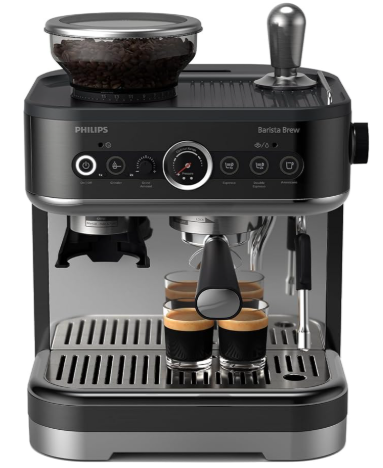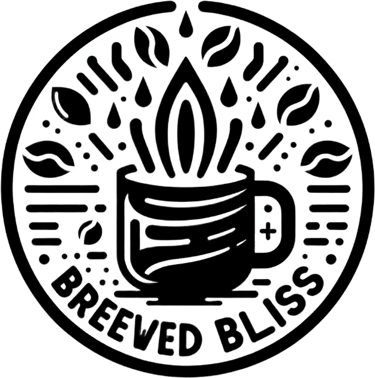Unleashing Creativity and Focus: The Impact of Coffee on the Mind
BLOG NEWS
9/8/20256 min read
The Science Behind Coffee and Brain Function
Coffee, one of the most widely consumed beverages globally, exerts significant effects on brain function primarily due to its key ingredient, caffeine. This natural stimulant functions by interacting with various neurotransmitters in the brain, most notably adenosine. Under normal circumstances, adenosine promotes sleepiness and relaxation; however, caffeine acts as an adenosine receptor antagonist. By binding to these receptors, caffeine prevents adenosine from exerting its calming effects, thereby enhancing alertness and wakefulness.
Numerous studies have reported that caffeine intake leads to improved cognitive functions such as memory, attention, and concentration. For instance, research published in the journal "Psychopharmacology" demonstrated that participants who consumed caffeine performed better on memory tasks compared to those who did not. Similarly, another study found that caffeine intake can lead to increased sensitivity in attention tasks. This heightened state of alertness may explain why people often rely on coffee to combat fatigue and enhance productivity, particularly during times of high mental demand.
Beyond individual cognitive benefits, coffee's neuroprotective properties have been highlighted in various studies. Research indicates that regular coffee consumption may lower the risk of neurodegenerative diseases such as Alzheimer's and Parkinson's disease. The protective mechanisms are thought to be associated with caffeine's ability to reduce inflammation and oxidative stress on neurons. As a result, the stimulating effects of coffee do not solely boost immediate cognitive functions but may also contribute to long-term brain health.
In conclusion, the relationship between coffee and brain function is a complex interplay of neurobiological mechanisms. Caffeine enhances alertness and cognitive capabilities, making it a widely used tool for enhancing creativity and focus. Continual research is expected to deepen our understanding of how this ubiquitous beverage affects not only immediate cognitive performance but also long-term brain health.
How Coffee Fuels Creative Thinking
Coffee, a beloved beverage for millions, holds the intriguing potential to enhance creative thinking. Caffeine, the primary stimulant found in coffee, is known to stimulate the central nervous system, resulting in increased alertness and improved cognitive function. Many artists, writers, and creators have long relied on coffee to break through mental barriers, noting that a cup of this energizing drink can spark inspiration and promote original ideas. The ritual of a coffee break often serves as a powerful catalyst in their creative processes.
Numerous anecdotes document instances where creators have experienced profound moments of clarity and innovation, all fueled by a steaming cup of coffee. Renowned authors and artists often emphasize the necessity of this stimulating beverage during their brainstorming sessions. For instance, famous writer Jack Kerouac attributed his literary successes to the sleepless nights fueled by coffee, where he crafted entire novels in a single burst of creativity. Similarly, musicians have noted that the lively atmosphere of coffee shops frequently leads to collaborations that yield some of their finest work.
Moreover, the environment where coffee is consumed can also influence the creative process. The buzz of a coffee shop or the comfort of a quiet nook can stimulate a creator's mind, promoting a flow of ideas. Timing also plays a quintessential role; consuming coffee at peak moments when one’s energy begins to wane can maximize cognitive resources. An afternoon coffee can re-energize and refocus the mind, enabling individuals to delve deeper into their creative endeavors. In this manner, coffee not only acts as a source of inspiration but also supports the important rhythms of creative thinking.
The Balance: Coffee for Focus vs. Overconsumption
Coffee, a widely appreciated beverage, has long been associated with enhancing focus and productivity. The primary ingredient responsible for this effect is caffeine, a natural stimulant that can elevate alertness and cognitive performance. However, finding the right balance in consumption is crucial; while moderate intake can sharpen focus and foster creativity, overindulgence may lead to adverse effects, including jitters, anxiety, and difficulty concentrating.
Research suggests that the optimal amount of coffee for most individuals lies between two to four cups per day, providing enough caffeine to promote focus without crossing the threshold into overconsumption. These recommendations are not one-size-fits-all—individual variances in caffeine tolerance can significantly influence one’s experience. Factors such as body weight, metabolism, and even genetic predispositions play a role in how caffeine is processed. Therefore, it is essential for each person to experiment and identify their unique sweet spot that maximizes productivity while ensuring comfort during work.
For some, a single cup may suffice to set the tone for creativity and clear-thinking, while others might thrive on a higher quantity. It is advisable to be mindful of the body's responses and adjust intake accordingly. Monitoring symptoms such as increased heart rate or anxiety can serve as indicators that one has reached their limit. Additionally, it may be beneficial to incorporate periods of caffeine abstinence or lower consumption to reset one’s tolerance and maximize the stimulant's effectiveness.
Ultimately, understanding the delicate balance of coffee consumption allows individuals to harness its motivational powers while sidestepping the pitfalls of overconsumption. By respecting personal limits and adjusting habits, one can enjoy coffee’s benefits while maintaining optimal focus and insight.
Practical Tips for Making the Most of Coffee for Boosting Creativity and Focus
To harness the cognitive benefits of coffee for enhancing creativity and focus, several practical strategies can be implemented in daily routines. Timing is crucial; consuming coffee at optimal times can significantly affect brain function. It is generally recommended to enjoy coffee during mid-morning hours, particularly between 9:30 and 11:30 AM. This timing capitalizes on the natural dip in alertness that occurs after waking and allows for subsequent spikes in concentration and creativity.
Pairing coffee with other beverages or snacks can further amplify its positive effects. For instance, pairing coffee with high-protein snacks such as nuts or a yogurt can create a balanced release of energy, preventing the dreaded afternoon crash. Alternatively, complementing coffee with dark chocolate can improve both the flavor experience and the cognitive boost since chocolate is known for its own stimulating properties.
Another effective practice is to incorporate mindful coffee breaks into daily schedules. Taking a few minutes to enjoy coffee without distractions can enhance mental clarity and provide an opportunity for brainstorming or reflection. Setting aside specific times for these breaks can help establish a routine that not only promotes relaxation but also encourages creative thought processes.
Experimenting with different brewing methods and types of coffee can also clarify individual preferences and the resulting cognitive impacts. Exploring options like pour-over, espresso, or French press can provide varied flavor experiences and varying levels of caffeine concentration, which can cater to specific needs for focus or creativity. Additionally, trying different coffee origins may introduce unique flavors and aromas that can stimulate the senses and boost motivation.
By integrating these strategies into everyday life, individuals can effectively utilize coffee as a tool to sharpen focus and enhance creativity, making the most of each cup while navigating their professional and creative endeavors.
One of our favorite coffee makers....
PHILIPS Barista Brew Semi Automatic Espresso Machine


About this item
Brew like a barista: The Philips Barista Brew Espresso Machine empowers coffee enthusiasts to create barista-quality brews with tools like the 58mm portafilter and single & dual walled filter baskets.
Integrated guidance: Enjoy intuitive guidance for crafting every cup, ensuring a rich aroma and satisfying espresso experience with the premium calibrated tamper & countertop-safe tamping system.
Elevate your coffee experience: Enjoy a 250g bean container that ensures freshness of your beans.
Upgrade your milk frothing experience: Elevate your milk frothing experience effortlessly with the 450ml stainless steel milk jug and powerful steam wand.
Choose your ideal brew: experience convenience with the Americano button and integrated hot water outlet, or choose a single or double espresso.
Click 'Shop Now' to find on Amazon
Why the PHILIPS Barista Brew Semi-Automatic Espresso Machine one of our favorites...
The PHILIPS Barista Brew Semi Automatic Espresso Machine is more than just a coffee maker—it's a daily dose of barista-level bliss in our own kitchen. It’s quickly become one of our favorite machines, and here's why.
First, let’s talk about consistency. This machine delivers rich, velvety espresso shots with the perfect crema—every single time. Whether you're pulling a single or a double, the semi-automatic design gives you control without being overly complicated, making it ideal for both beginners and seasoned home baristas.
The built-in steam wand is another major win. It creates creamy, café-quality microfoam for lattes, cappuccinos, and flat whites. It heats up quickly and gives you just the right amount of power to texture milk exactly how you like it.
Disclosure: This post contains affiliate links. If you click and make a purchase, I may earn a small commission at no extra cost to you.


